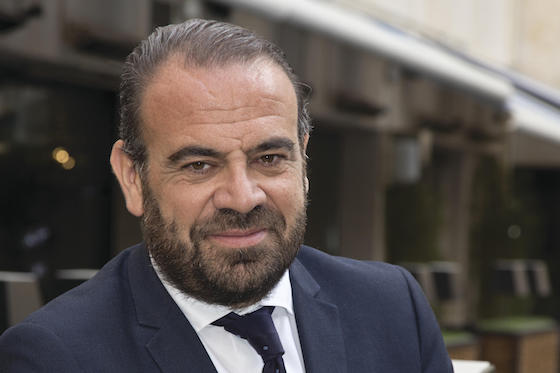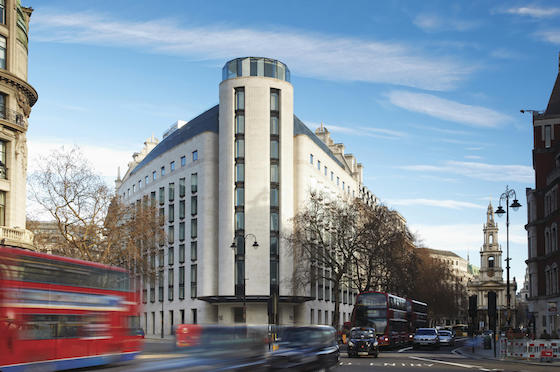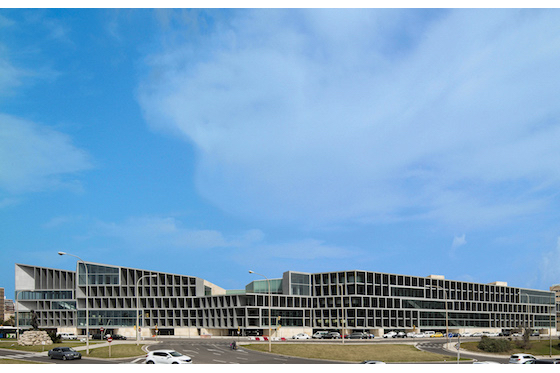In a shifting industry where brands are proliferating, consolidations are abounding and well-funded competition is coming from just about anywhere, most big hotel companies have two choices: Grow even bigger or specialize.
Meliá Hotels International CEO and Vice Chairman Gabriel Escarrer Jaume would add a third: Get faster.
“Right now we are experiencing the most accelerated change period in history,” he says, with the perspective of a 60-year-old family business. “It is not the big fish who gets the small fish, but the fast fish who gets the slow one.”
Palma de Mallorca-based Meliá, founded in 1956 by Escarrer’s father, Gabriel Escarrer Juliá, is a big fish: the largest hotel company in Spain and ranked 17th on HOTELS’ Giants list, with more than 370 hotels in more than 40 countries under eight brands. But despite an ambition to grow, Escarrer wants to leverage the company’s leadership in resorts to focus on travelers mixing business with vacation.

The company aims to become a leader in “bleisure” travel, with the brands front and center in its strategic plan. Each brand is linked to the “mother” brand, Meliá. “We believe we have a competitive advantage when it comes to leisure hotels, since we have the know-how, the commercial vision and the strength, as well as the service culture and values, because we started since the beginning as a resort company,” he says.
Bouncing back
The company is in a stronger position to do this now than in 2009, when Escarrer took over as CEO during a period of financial difficulties amid the global recession. Since then, the company has been righting its balance sheet – net debt fell to €542 million (US$581.0 million) in December 2016, a €226 million (US$242.3 million) decrease from the year-earlier period – and net profit jumped to €102.5 million (US$109.9 million) from €40.5 million (US$43.4 million). RevPAR at owned and leased hotels grew 9%, to €80.5 (US$86.30); at owned, leased and managed hotels, it grew 14%, to €70.5 (US$75.6).
The company’s presence in resorts is paying off in Spain and elsewhere in Europe. Political turmoil and terrorism have driven European tourists who usually would sun themselves economically in northern Africa to go elsewhere. Julien Richer, a Raymond James analyst in Paris who tracks Meliá, doesn’t expect that to change for at least a couple of years, even though he says European prices have rebounded to pre-2009 levels.
“Most of (Meliá’s) EBITDA is coming from resorts in Latin America and the Mediterranean,” Richer says. He divides the company’s revenue sources to 40% from Spain and the Mediterranean, 30% in the Americas and 30% coming mostly from European cities. The company has another advantage: “In Europe, especially, they have no real competition except Club Med,” he says.
In 2016, Meliá added more than 24 properties and signed 18 hotels in 10 countries; this year, Escarrer says its global pipeline has 68 signed properties, for a total of more than 17,000 rooms coming on line in the next two and a half years. Two-thirds of that will come from resorts, and the rest from city properties.
“This year we’re going to add between 28 and 30 properties in our portfolio, and this is what we believe, in terms of organic growth, the company can handle without creating a bottleneck,” Escarrer says. “We want to keep our approach to specializing even more and being unique in this resort world and pleasure concept.” ME by Meliá and Innside by Meliá are pegged for the fastest growth, he says.

Aiming for growth
The longer view – and at a family-run company, there is always a longer view – is that “in five, 10 years, we want to consolidate our management-oriented business model and become more hotel managers,” he says. “I see our company in the future as a truly global leading hotel management company.”
Escarrer sees potential farther afield than its Mediterranean stomping grounds: Nearly 30 signed properties are in Southeast Asia. The company has been in that region since the 1980s and has three open hotels and four in the pipeline in China, two of which – Gran Meliá Xi’an and Meliá Jinan – opened in 2015; the others will open within two years. Several are joint ventures with Greenland Group, China’s largest real estate developer.
“In my opinion, our approach is different in the sense that we are a family-grown business group with a Mediterranean heart, with a passion for hospitality and a deep vocation for service,” he says. “What we have done different from the others is that Meliá integrates the local culture into every aspect of the experience and enjoyment. And we share a common ground of values with China’s travelers and hotel owners, as well as a similar vision and looking for a sustainable tradition development.”
The company has underlined its attempt to lure China’s outbound travelers with a guest services program launched last year called Pengyou by Meliá (“pengyou” means friend in Chinese). It includes Mandarin-speaking service staff, a Chinese-language TV channel in the guest room, Chinese food and acceptance of the China Union credit card; it’s operating in the 80 Meliá hotels that are part of China’s Ctrip OTA, mostly in big European cities and Latin America.
The logical next step for Meliá is Asia, where no one player has cornered the resort market, Richer says. “They have room to grow there.”
He adds, “I don’t think, to be frank, that (Meliá has) something that is better than what the competition is doing.” Meliá needs to develop local partnerships and loyalty programs that can make the difference, he says, particularly in diverting Chinese travelers who are mostly heading to Europe’s history-rich cities.
Richer adds that Meliá’s growth strategy makes sense. “It’s clearly not Accor or IHG in terms of growth,” he says. “They are in a niche market with their resorts, and they are immune from Airbnb at this stage because it is not in the resort segment. They are benefiting from that.”
Market pioneer
The company’s experience in Cuba, starting in the mid-’80s, is coming in handy in another emerging market. Last year, Meliá signed an agreement with Ghoo Middle East Diamond Company to open the Gran Meliá Ghoo Hotel in a mixed-use development in Salman Shahr on the Caspian Sea. It’s the first 5-star brand to be managed by an international hotel company in Iran, which expects a spike in tourism since sanctions on international investment, set in 2006, were lifted. When it opens in 2018, Escarrer says the lion’s share of clientele will come either from Iran or Arab countries, with most of the rest from Russia.
“Instead of opening a hotel in Tehran, which is something that we will, probably hopefully soon, we have started in the Caspian Sea, because we believe it’s a great location,” he says. “And our advantage is to develop from scratch the resort of Iran. And when I say the resort, I’m not talking about just the Caspian Sea and the beach. I’m talking about the cultural places that Iran has to offer.”
Other lessons from Cuba: “Never disappoint your local partners and always look for long-term views,” he says. “Being a family-owned company sometimes makes it easier, because as you can imagine, the long view, long objectives, is our DNA. Joining forces with another family-owned company in these countries makes a difference.”
That long-term view has led to 27 hotels and resorts on the island that capture almost 32% market share of tourists. “Iran has a huge potential. It’s a country that needs to be in the radar and has a lot to offer from a lot of points of views, starting from the culture, from the hospitality of its people, the beauty of the country, etc.”
Family history
The long view is central to the Meliá philosophy. “The good thing about
being a public company in terms of repetition, in terms of how the company has professionalized and at the same time been a family-owned company, makes a difference in order to have very strong values, these long-term views,” Escarrer says. In Latin America, the Middle East and Southeast Asia, many real estate companies are family-owned. “So, by sharing these values, these long-term views, this commitment from the family sometimes makes the difference.”
Escarrer takes his work personally. “In my opinion, it’s a lovely company, and this is what I have felt since I was a little boy… Since I was a little boy, my vocation was in the family group.” He has worked with his father for 20 years, after a stint at Salomon Brothers in New York City, and just as starting as Meliá went public. “I love to work with him,” Escarrer says.

He has made his mark, starting when he took the CEO role in 2009. Modernization and cultural transformation was aimed at responding effectively to what he terms “the international crisis.” That included a new organizational and management structure, corporate value statement, a hotel renovation program and the launching of Meliá.com as a sales channel.
“We have emerged from Europe’s economy crisis stronger than ever, and more financially consolidated with the new international focus, and a management-oriented business model that will make us become more and more competitive within the top international hotel chains and enables us to face the future from a privileged position,” Escarrer says.
He returns to the long-term view. “Hopefully you will see an Escarrer involved, at least in the next 60 years. But coming back to this point, being a family-owned company doesn’t mean that the family should be involved in the management,” he says. “Our approach, I’m sure for next generation, should be more, I think, from the shareholder position rather than the management of the company.”
Sidebar: Partnering up
In early 2015, Starwood Capital formed a joint venture with Meliá, in which a Starwood affiliate took an 80% share on six resorts in Spain totaling 2,933 keys and €176 million (US$198 million). Meliá owns 20% and manages the resorts, mainly under the Sol brands, which were refurbished.
“We have very much been impressed with Meliá in terms of being able to renovate and reposition the hotels we’ve had so far,” says Jeffrey Dishner, senior managing director and global head of real estate acquisitions for Starwood Capital Group in London, who calls the hotel company “one of the better partners that we’ve had in the space.” He says the two companies are actively looking for other opportunities, either Meliá- or third party-owned, elsewhere in Spain and including Portugal, Italy and Eastern Europe.
Dishner calls Meliá practical and efficient in how it completes hotel renovations and repositionings. “We do rely on them as being great at the execution side of the hotel business,” he says. “It’s a tricky business.”
